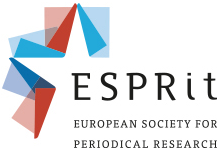Oxford Centre for Life-Writing (OCLW)
Hilary Term 2016: Events
(all events free of charge unless otherwise stated)
Thursday 21 January (Week 1), 1-2pm, Haldane Room, Wolfson College
Life-Writing Lunch – Lucasta Miller: ‘Letitia Landon: portraiture and the slippery subject in post-Byronic literary culture’
Register via http://www.oxforduniversitystores.co.uk (browse ‘Products’ for ‘Oxford Centre for Life-Writing’). A buffet sandwich lunch will be provided.
Thursday 21 January (Week 1), 5:30 – 7pm, LWA (Leonard Wolfson Auditorium)
Ian Bostridge (tenor): ‘Schubert’s winter journey: an illustrated talk’
WEINREBE LECTURE SERIES: ‘Variations on Biography’
Tuesday 26 January (Week 2), 5.30-7pm, LWA
Weinrebe Lecture 1: Julian Barnes: ‘Some of my best friends are biographers’
Tuesday 2 February (Week 3), 5.30-7pm, LWA
Weinrebe Lecture 2: Marcus du Sautoy: ‘The life of primes: the biography of a mathematical idea’
Tuesday 16 February (Week 5), 5:30-7pm, LWA
Weinrebe Lecture 3: Adam Phillips: ‘Against Biography’
Monday 22 February (Week 6), 5.30-7pm, LWA
Weinrebe Lecture 4: Alexandra Harris: ‘Tempered Lives: Weathers, Seasons, and Biography’
Saturday 13 February (Week 4), 9:30am-4:45pm, LWA
Life-Writing Workshop: on the theme of ‘Emotional Lives’
Speakers: Hermione Lee, Patrick Hayes
Tickets available to purchase at http://www.oxforduniversitystores.co.uk
Tuesday 8 March (Week 8), 1-2pm, Haldane Room
Life Writing Lunch: Karen Arrandale: ‘Edward J Dent – A Serpentine Life’
Register at http://www.oxforduniversitystores.co.uk (buffet sandwich lunch provided)
Tuesday 8 March (Week 8), 5.30-7pm, LWA
‘Writing War, Writing Lives’ – Chair: Lara Feigel, panellists: Santanu Das, Hope Wolf, Kate McLoughlin, Sue Vice, Victoria Stewart
.
.
Category: Archived Events
.
Tags: Adam Philiips, Alexandra Harris, biography, Edward J Dent, Hermione Lee, Hope Wolf, Ian Bostridge, Julian Barnes, Karen Arrandale, Kate McLoughlin, Lara Feigel, Lucasta Miller, Marcus du Sautoy, Oxford Centre for Life-Writing, Patrick Hayes, Santanu Das, Schubert, Sue Vice, Victoria Stewart, Weinrebe Lecture Series





